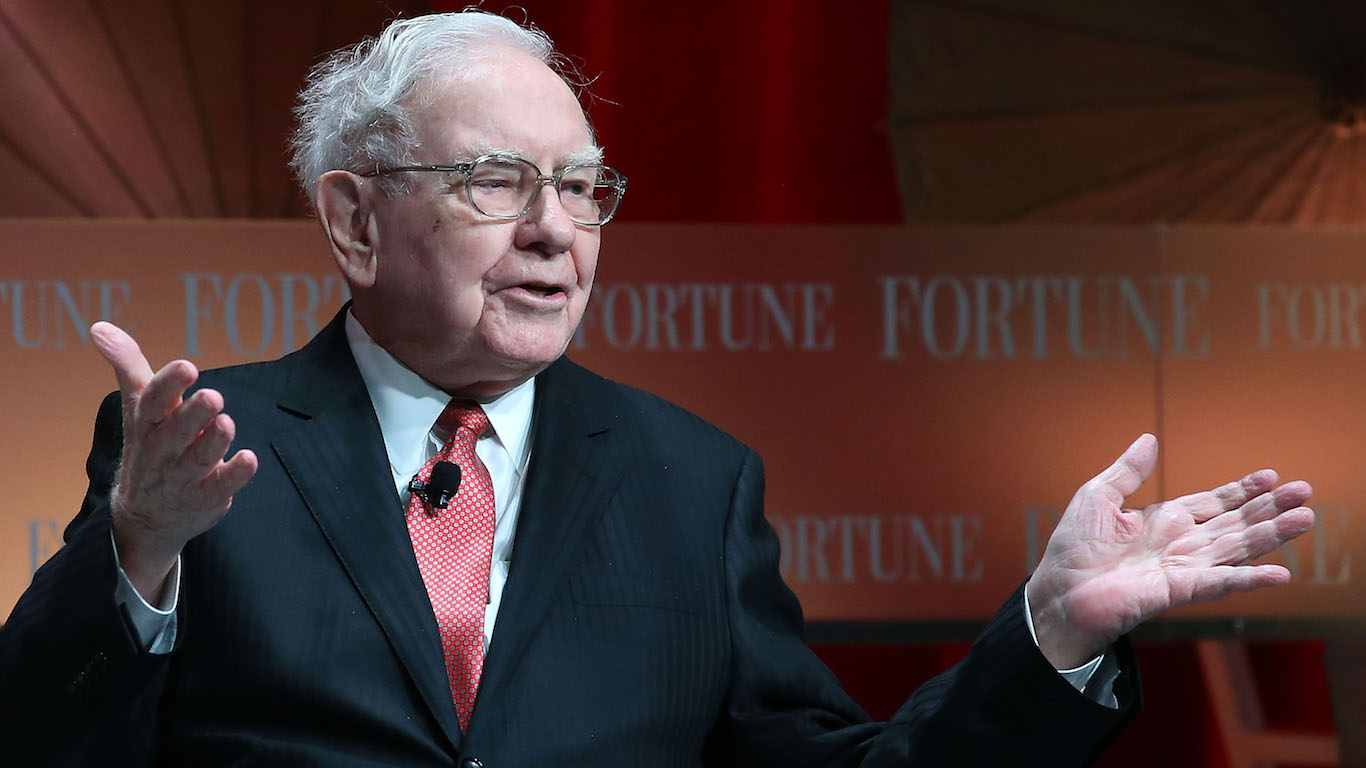 Publicly traded companies, by definition, have many shareholders. The company’s management is supposed to be accountable to those shareholders. As it turns out, however, in some cases shareholders have limited power, and in other cases almost no power whatsoever when considering voting rights. The public was warned about this in detail ahead of the Facebook, Inc. (NASDAQ: FB) IPO, and those shareholders have so far paid dearly. But what about other companies where shareholders have little to no real say in the day-to-day operations of a company?
Publicly traded companies, by definition, have many shareholders. The company’s management is supposed to be accountable to those shareholders. As it turns out, however, in some cases shareholders have limited power, and in other cases almost no power whatsoever when considering voting rights. The public was warned about this in detail ahead of the Facebook, Inc. (NASDAQ: FB) IPO, and those shareholders have so far paid dearly. But what about other companies where shareholders have little to no real say in the day-to-day operations of a company?
24/7 Wall St. wanted to highlight some of the other public companies where investors who buy the common stock have no real power over issues that require shareholder voting and approval. The New York Stock Exchange goes so far as to define such companies in filings using the term “controlled company.”
Many investors think that Berkshire Hathaway Inc. (NYSE: BRK-A) is run entirely by Warren Buffett without consideration to those who own the company’s A and B shares. Many also think that Microsoft Corporation (NASDAQ: MSFT) is entirely under voting control of founder Bill Gates and CEO Steve Ballmer. Many think that Brian Roberts has an unchecked supervote while holding only 1% ownership of Comcast Corporation (NASDAQ: CMCSA). Those men certainly have a huge influence over their public companies, and they can easily round up a majority of votes on most issues if needed. But they do not generally have total control that would allow them to act irresponsibly without consideration of their shareholders on each and every aspect of the business.
24/7 Wall St. has identified 11 companies in which shareholders effectively have no say at all, even on days of the annual meetings when they vote on proxy statement initiatives. It is conceivable that some of these companies have annual stockholder meetings and make annual report filings only because they have to by law. This is where dual classes of stock come into play and where founders or their heirs have total voting control even if they do not own the majority of the financial interest of the primary common public shares. Not all of these companies are run mysteriously like Facebook, but there are extra risks in these companies that investors need to consider versus traditional public companies.
+++++++++++++++++++++
American International Group, Inc. (NYSE: AIG) may be the poster child of the Great Recession and of asset values imploding, but the company survived with a taxpayer bailout that is yet to be fully repaid. With CEO Robert Benmosche at the helm, AIG is actually back to being profitable. Benmosche has managed to fight off too much outside control, but the reality is that the U.S. Treasury is still the majority owner — despite two large secondary offerings. The company noted that its May offering, “reduced Treasury’s remaining TARP investment in AIG to approximately $29 billion, consisting of approximately 1.06 billion shares of AIG common stock (with a market value of approximately $33.7 billion based on the May 9, 2012 closing sale price on the New York Stock Exchange), and reduced Treasury’s percentage ownership of AIG common stock to approximately 61 percent. Total outstanding or authorized U.S. Government assistance has now been reduced by 79 percent from the original $182 billion.” Uncle Sam is still 61% in control of AIG and the company is still under pressure to keep selling assets and make profits. Until more shares are sold, AIG might as well be considered a profitable government agency.
++++++++++++++++++++++++
The Blackstone Group LP (NYSE: BX) is one of the most public faces of the private equity industry. It has been public since 2007 and it is still considered a controlled entity like other private equity shops. Under the section “Risks Related to Our Organizational Structure” of its 2011 annual report, Blackstone stated, “Our common unitholders do not elect our general partner or vote on our general partner’s directors and have limited ability to influence decisions regarding our business. … As of December 31, 2011, Blackstone Partners L.L.C., an entity wholly owned by our senior managing directors, had 61.5% of the voting power of The Blackstone Group L.P. limited partners. Therefore, our senior managing directors have the ability to remove or block any removal of our general partner and thus control The Blackstone Group L.P.” Steve Schwarzman and partners have been wildly successful growing the business into one of the largest private equity firm. Blackstone paid out a yield of more than 4% the past year to common unit holders. Still, shares (units) lost more than half of their value since the group went public. On top of worrying about the potential tax issue around carried interest, issues concerning regulation of private equity, and public criticism of private equity, this degree of control poses a risk that shareholders have to consider for the long term.
+++++++++++++++++++++++
Broadcom Corporation (NASDAQ: BRCM) has so far been successful in growing during the explosion of the communications age, and it is now worth some $17 billion in market value. It is also one of the companies that is most overlooked when it comes to “shareholder matters.” In the annual report, cofounders Henry T. Nicholas III and Henry Samueli are listed as holding 10.8% and 9.7% of common stock, respectively, but the two men control 51.5% of the voting interest due to Class B shares. This company has been charged in the past with illegal stock options backdating, and its chief has been under a cloud for “very odd” entertainment made public. It has also been involved in patent and intellectual property cases, and its five largest customers have grown to represent more than 42% of its 2011 sales. Broadcom now pays a small dividend. So far, the management team has been able to grow the company, and growth ahead is expected to remain. The question is how the two founders will treat Broadcom’s shareholders down the road.
+++++++++++++++++++++++++++
EchoStar Corporation (NASDAQ: SATS) shareholders have almost no rights. Those buying shares of the company might want to consider that they are effectively making a bet on one man rather than on a truly public company. The “Risks” section in EchoStar’s latest annual report confirms that Chairman Charles Ergen, who controls the company, may have a conflict of interest because of his control of DISH Network (NASDAQ: DISH). At DISH, Ergen owns not only 53% of the financial equity interest but also some 90.4% of the voting interest. And at EchoStar, “We are controlled by one principal stockholder who is our Chairman. … Charles W. Ergen, our Chairman, beneficially owns approximately 50.7% of our total equity securities (assuming conversion of only the Class B Common Stock held by Mr. Ergen into Class A Common Stock) and possesses approximately 75.6% of the total voting power.” Ergen’s family trusts own even more of the company.
+++++++++++++++++++++++++
Google Inc. (NASDAQ: GOOG) effectively now falls under the “permanently controlled entity” status after the most recent share split announcement earlier in 2012. Founders Sergey Brin and Larry Page, along with ex-CEO Eric Schmidt, control roughly 65% of the voting interest due to Class B stock. Google was the great Internet growth story of the past decade, but now the founders are getting into more and more areas not tied to the core search business and many of these efforts are not at all obvious money-making efforts for shareholders. While its informal corporate motto is “Don’t be evil,” it is amazing how many regulatory, oversight agencies, and foreign governments have had inquiries into the company because of privacy issues and business practices. It has been said over the past year that Eric Schmidt was the adult supervision at Google, but he is no longer in charge of the day-to-day operations. While Google tried to pass its stock split as nothing more than traditional, in effect, the move will lock in power for the founders permanently. They can effectively ignore every single call from shareholders for the rest of their lives.
+++++++++++++++++++++++++++
Groupon, Inc. (NASDAQ: GRPN) is perhaps one of the most poorly run companies of the recent Web 2.0 IPOs. The company’s finances already have come under question over controls and procedures. Groupon even admitted it has a “material weakness” in its financial reporting process, a tremendous warning sign about the quality of a company’s management. Losses have piled up, and shares in this busted-IPO have fallen more than 60% from its peak. Andrew Mason has been able to insulate himself from all of the issues under question as he and two other cofounders, Executive Chairman Eric Lefkofsky and Bradley Keywell, effectively own all of the voting shares. SEC filings warn shareholders that the concentration of stock ownership will “limit your ability to influence corporate matters.” The company likely will sell more shares in the future, either to finance operations or for insiders to cash-out. The question is what is to prevent management from acting in the interest of their own wealth rather than that of the common holders?
++++++++++++++++++++++++
The Hershey Company (NYSE: HSY) has been public for as long as most investors have been alive. The company that makes Hershey Bars and Hershey Kisses is effectively a controlled entity despite being a public company. The Hershey Trust, on behalf of the Milton Hershey School Trust, controls approximately 80% of the company’s voting power due to two classes of stock. The company’s annual report notes, “Holders of the Common Stock have one vote per share. Holders of the Class B Stock have 10 votes per share. Holders of the Common Stock, voting separately as a class, are entitled to elect one-sixth of our Board of Directors. With respect to dividend rights, holders of the Common Stock are entitled to cash dividends 10% higher than those declared and paid on the Class B Stock.” With mergers and consolidation a staple of the candy business, shareholders have to at least wonder if their interests are truly being regarded.
++++++++++++++++++++++++++
The New York Times Company (NYSE: NYT) has been victim of the move to digital and away from print, but it also has not adequately monetized its many assets. In 2002, the stock was above $50 but sits under $7 today. The 2011 annual report notes in the “Risk Factors” section, “Our Class B Common Stock is principally held by descendants of Adolph S. Ochs, through a family trust, and this control could create conflicts of interest or inhibit potential changes of control.” Class A Common shares get to elect 30% of the Board of Directors and “to vote, with holders of Class B Common Stock, on the reservation of shares for equity grants, certain material acquisitions and the ratification of the selection of our auditors. Holders of Class B Common Stock are entitled to elect the remainder of the Board and to vote on all other matters.” That gives the Ochs-Sulzberger clan 70% control in the company. In short, the newspaper is effectively a controlled entity. The board ousted CEO Janet Robinson to reinstate a dividend. The company has underfunded pension plans, and it has had labor woes. The company may consider asset sales and mergers, and they could be done at terms not necessarily in the best interest of common shareholders. To make matters even more complicated, a power play with shareholder and creditor Carlos Slim could arise down the road.
++++++++++++++++++++++++++++
Tyson Foods, Inc. (NYSE: TSN) is a $7 billion food empire that sells chicken, pork and beef, among other products, to grocery stores. While the stock is not that far under all-time highs, potential investors should remember that Tyson is actually a controlled entity with a dual share class structure that gives the heirs of the founder control. The Tyson Limited Partnership owns 99.97% of the outstanding shares of Class B Common Stock, and the partnership and members of the Tyson family own 2.45% of the outstanding shares of Class A Common Stock. The combination collectively gives it control of approximately 70.74% of the total voting power. Tyson has been the subject of legal cases, worker documentation issues, actions by the Department of Justice and the Environmental Protection Agency, scares over livestock outbreaks and contamination, and more. The company also pays a dividend of only $0.04 a share per quarter, which is less than 1% annualized, and that payout has not risen since 1999.
++++++++++++++++++++++++++++
VMware Inc. (NYSE: VMW) is the de facto king of virtualization, and it has a great lead over all other virtualization players. It also now has a market capitalization of more than $40 billion. Still, this company is almost no different from an old “tracking stock” of the late 1990s. EMC Corp. (NYSE: EMC) spun VMware off in 2007 via an initial public offering after buying it in 2004. The most recent annual report states, “EMC holds approximately 80% of our outstanding common stock … including 38 million shares of our Class A common stock and all of our Class B common stock, and we are considered a ‘controlled company’ under the rules of the New York Stock Exchange.” EMC has even gone as far as to buy up additional shares after employees of the company have exercised those prized stock options. EMC unexpectedly fired VMware’s cofounder Diane Green from its role as CEO in 2008, and it has more than enough voting rights to keep the public shareholders from having any real say. EMC could literally flood the market with VMware shares or it could make VMware into whatever sort of company it wants — and the public shareholders would be powerless.
++++++++++++++++++++++++++++
Zynga Inc. (NASDAQ: ZNGA) has been a controlled entity from the start. We highlighted its “lousy voting rights” as one of the key risks back in late 2011, due to not just two classes of shares but three. At the time of the IPO we noted as a risk, “the Class B shares will represent approximately 72.5% of the voting power and the Class C shares will represent approximately 25.7% of the voting power. Tally this up and it looks as though the Class A shares, which the IPO investors are getting, will have a whopping 1.8% of the voting power.” Insiders have sold shares and likely will continue selling more shares ahead, but the three classes of stock allows for insiders to have few outside checks and balances over governance issues. Zynga is yet another busted IPO, with shares down 40% from its IPO price and down well over 50% from its peak. The company is also still very dependent on Facebook for its revenue. Those in control ultimately care more about their value than the value of the public holders. Zynga’s share structure gives founding CEO Mark Pincus some 70 votes per share. He could sell a substantially greater number of his shares and still retain control of Zynga.
JON C. OGG
Credit Card Companies Are Doing Something Nuts
Credit card companies are at war. The biggest issuers are handing out free rewards and benefits to win the best customers.
It’s possible to find cards paying unlimited 1.5%, 2%, and even more today. That’s free money for qualified borrowers, and the type of thing that would be crazy to pass up. Those rewards can add up to thousands of dollars every year in free money, and include other benefits as well.
We’ve assembled some of the best credit cards for users today. Don’t miss these offers because they won’t be this good forever.
Flywheel Publishing has partnered with CardRatings for our coverage of credit card products. Flywheel Publishing and CardRatings may receive a commission from card issuers.
Thank you for reading! Have some feedback for us?
Contact the 24/7 Wall St. editorial team.



